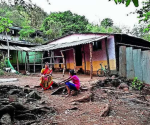Inside rural India’s movement for gendered property rights | Mumbai News – The Times of India

Three years ago, Arvind Hamdapurkar, a social worker from Pathri in Parbhani district, unintentionally scared his wife, Jayshree, by transferring the house he bought with his life savings of Rs 1.5 lakh to her name. “She thought I was planning to leave her,” laughs Hamdapurkar, who began to rethink his views on women’s rights after joining a course run by the NGO CORO India.
“I used to wonder if women could handle the process,” he admits, until a book called ‘Stree Purush Tulna’ opened his eyes to his own ingrained misogyny. While friends from Marathwada questioned why he didn’t opt for a joint name, a certificate he received on April 28 reaffirmed his conviction: “I feel proud of doing the right thing.”
That certificate was awarded at Siddharth College of Commerce and Economics in Fort, where Hamdapurkar was one of 28 participants—including 24 women, three men, and one transgender person—to complete CORO India’s year-long grassroots course on women’s property rights. Organised in collaboration with the Womanity Foundation, the event brought together activists, lawyers, civil servants, and writers to celebrate the culmination of a programme that not only educated but transformed lives.
The training, which began in January 2024, reached rural pockets and had a real-world impact. “It wasn’t just about sections and penal codes but about the process behind the making of the laws,” said Hamdapurkar, recalling why the course piqued his interest. Participants didn’t just learn. They acted. Several began acquiring property in their own names. A transgender participant, for instance, started the process of transferring property to their disciple.
Programme head Amita Jadhav explained the motivation behind the initiative by referencing the Manusmriti. “About the rights of women, Manusmriti says ‘father in childhood, husband in youth and son in old age takes care of woman.’ So a woman is not independent. Since a woman is secondary on so many levels, she should be entitled to certain rights.”
Panellist Sanjay Phunde, senior health officer at the BMC, highlighted the chasm between legal rights and lived realities. “When women lack documentation of marriage, inheritance or land, their rights tend to be overlooked,” he said. He also called for gender-neutral language in governance and social discourse. “‘Meri beti yani ki paraya dhan’—this Indian mindset of men being assets and women being liabilities needs to change.” Advocate Ashvin Thool stressed the need to challenge not just laws, but also patriarchal practices and mentalities. He cited the frequent omission of marriage registration, particularly in child marriages, which complicates legal recourse. Jayashri Kurane, a social worker from Kolhapur, emphasized strengthening partnerships with gram panchayats to raise awareness, while senior writer Sandhya Pawar offered a historical perspective: “The system women are demanding property rights from once considered women as property.”
Transgender rights were also a key focus. “When we talk about property rights, often only women are considered. But transgender persons also have rights,” said a participant. “Families often don’t accept them or transfer property to their names. Though legal reforms exist, awareness is low. If we truly want to create an inclusive society, we must recognise the rights of all genders. Property rights belong to everyone.”
The discussions covered a wide range of issues: inheritance rights, land under lease, property claims of forest dwellers, and the legal status of child marriages without documentation. Resolutions were adopted, including proposals to add transgender representation in the Maharashtra Revenue Act, 1966, mandate registration of children in ancestral property, simplify documents for nomadic communities, and ensure separate registration for single women in local records. Participants also advocated that spouses should be automatically enrolled as heirs to each other’s self-earned property. The ceremony concluded with certificates distributed by dignitaries like Shivani Gupta, Sujata Khandekar, and Mumtaz Shaikh. Gupta applauded the commitment of the participants, while Khandekar voiced hope for a wider movement across Maharashtra. Mahindra Rokde summed up the collective spirit: “You are working to break the yoke that Manusmriti imposed.”
















